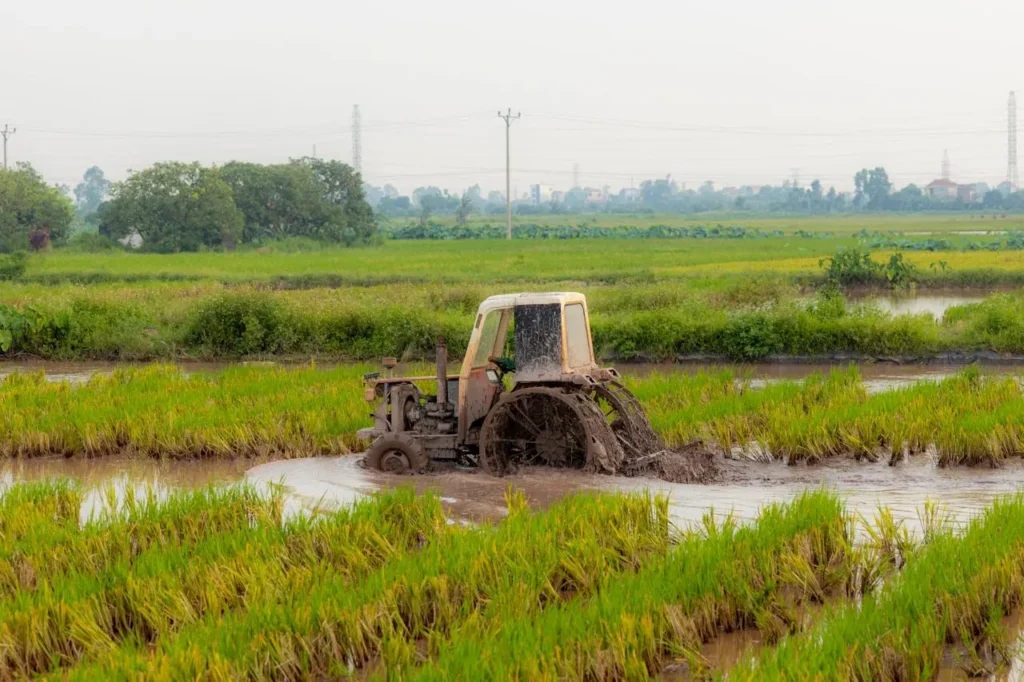As climate change affects weather patterns, farmers and gardeners increasingly turn to technology to ensure their crops thrive. One of the essential tools in modern agriculture is the soil moisture sensor. These devices help monitor soil water levels, providing real-time data to make informed irrigation decisions. Whether you are managing a large farm or a small garden, these sensors can save water, improve crop yields, and reduce labor costs. In this article, we will explore 10 top soil moisture sensors available in the UK.
1: Vegetronix VH400 Soil Moisture Sensor

The Vegetronix VH400 is a reliable and accurate soil moisture sensor that measures soil moisture without getting affected by soil salinity. It works well in a range of soil types, making it ideal for both commercial farms and home gardeners.
- Key Features:
- High sensitivity and accuracy
- Durable and weather-resistant
- Compatible with many controllers and data loggers
- Pros:
- Works in different soil conditions
- Affordable
- Requires low maintenance
- Cons:
- Limited to small to medium-scale use
- Does not provide temperature readings
2: Teralytic Wireless Soil Sensor

The Teralytic Wireless Soil Sensor provides a comprehensive solution for monitoring soil conditions. It measures not only moisture but also pH, temperature, and nutrient levels, making it ideal for precision farming.
- Key Features:
- Measures 26 soil health indicators
- Wireless connectivity
- Real-time data accessible via app
- Pros:
- Comprehensive soil analysis
- Long battery life
- Easy-to-use app interface
- Cons:
- Expensive
- Requires a subscription for advanced features
3: Davis Instruments 6440 Soil Moisture Sensor

Davis Instruments is known for producing high-quality weather instruments, and their 6440 Soil Moisture Sensor lives up to this reputation. This sensor is designed for accurate moisture readings, and it integrates seamlessly with Davis weather stations.
- Key Features:
- Compatible with Davis Vantage Pro2 and Vantage Vue weather stations
- Reliable moisture readings
- Durable construction
- Pros:
- Excellent for integrating with weather stations
- Accurate moisture readings
- Built to last
- Cons:
- Requires additional equipment for use
- Higher price point for full setup
4: Parrot Flower Power Plant Monitor

The Parrot Flower Power Plant Monitor is a user-friendly sensor aimed at hobbyists and home gardeners. It tracks moisture, sunlight, temperature, and fertilizer levels, making it a versatile tool for plant care.
- Key Features:
- Monitors four plant metrics
- Bluetooth connectivity
- Suitable for indoor and outdoor use
- Pros:
- Easy to use
- Provides actionable insights via app
- Affordable
- Cons:
- Limited range due to Bluetooth
- Not suitable for large-scale farming
5: ECOWITT WH51 Soil Moisture Sensor

The ECOWITT WH51 is an affordable and straightforward soil moisture sensor. It is compatible with the ECOWITT weather stations and comes with a wireless display that provides real-time moisture levels.
- Key Features:
- Wireless operation
- Real-time moisture data on display
- Easy to install and use
- Pros:
- Budget-friendly
- Wireless connectivity
- Suitable for hobbyists and small gardens
- Cons:
- Limited functionality
- Requires additional hardware for full use
6: Delta-T Devices SM150T Soil Moisture Sensor

Delta-T Devices is a leading brand in soil moisture sensing technology. The SM150T Soil Moisture Sensor offers high accuracy and is ideal for both research and commercial farming applications.
- Key Features:
- High accuracy and reliability
- Rugged design for outdoor use
- Compatible with data loggers
- Pros:
- Professional-grade accuracy
- Versatile and durable
- Suitable for research and commercial use
- Cons:
- Higher price point
- Requires data logger for full functionality
7: Netro Whisperer Smart Plant Sensor

The Netro Whisperer Smart Plant Sensor is designed for the modern, connected gardener. It monitors moisture, sunlight, and temperature, and integrates with smart home systems like Alexa.
- Key Features:
- Smart home integration
- Cloud storage of data
- Solar-powered
- Pros:
- Smart home compatibility
- Solar-powered, eco-friendly
- User-friendly app interface
- Cons:
- Limited to smart home users
- Not ideal for commercial farming
8: Blumat Digital Tensiometer

The Blumat Digital Tensiometer is a soil moisture sensor that measures soil tension, helping you understand how much water is available to your plants. This makes it a great tool for precision watering.
- Key Features:
- Measures soil tension
- Easy to read digital display
- Accurate water availability readings
- Pros:
- Provides precise moisture data
- Easy to use
- Portable design
- Cons:
- Only measures soil tension, not other metrics
- Requires manual checking
9: PlantLink Soil Moisture Sensor

PlantLink is a straightforward soil moisture sensor that works with a base station to monitor plant moisture levels. It sends notifications to your phone when your plants need watering.
- Key Features:
- Smartphone notifications
- Simple setup
- Monitors soil moisture continuously
- Pros:
- Easy to install
- Sends helpful notifications
- Affordable
- Cons:
- Requires a base station
- Limited to basic moisture readings
10: Gardena Smart Sensor

The Gardena Smart Sensor is part of the Gardena smart system, which includes a range of garden tools and sensors. This soil moisture sensor connects wirelessly to your smartphone, providing real-time moisture and temperature data.
- Key Features:
- Wireless connectivity
- Works with Gardena smart system
- Real-time data tracking
- Pros:
- Part of a larger smart system
- Easy to monitor remotely
- Accurate moisture and temperature data
- Cons:
- Expensive
- Requires other Gardena devices for full functionality
Conclusion
Soil moisture sensors are invaluable tools for both hobbyist gardeners and commercial farmers. They offer a range of features, from simple moisture readings to comprehensive soil analysis, helping you make informed decisions about irrigation and plant care. With options available for every budget and need, investing in a soil moisture sensor can improve water efficiency and plant health.
FAQs
1. How do soil moisture sensors work?
Soil moisture sensors measure the water content in the soil. Some use electrical resistance, while others measure the dielectric constant of the soil to determine moisture levels.
2. Are soil moisture sensors worth the investment?
Yes, they can help reduce water usage, improve crop yields, and lower labor costs, making them worth the investment for many.
3. Can I use a soil moisture sensor for indoor plants?
Yes, many soil moisture sensors are designed for both indoor and outdoor use.
4. Do soil moisture sensors need to be calibrated?
Some sensors require calibration to ensure accurate readings, while others are pre-calibrated for convenience.


